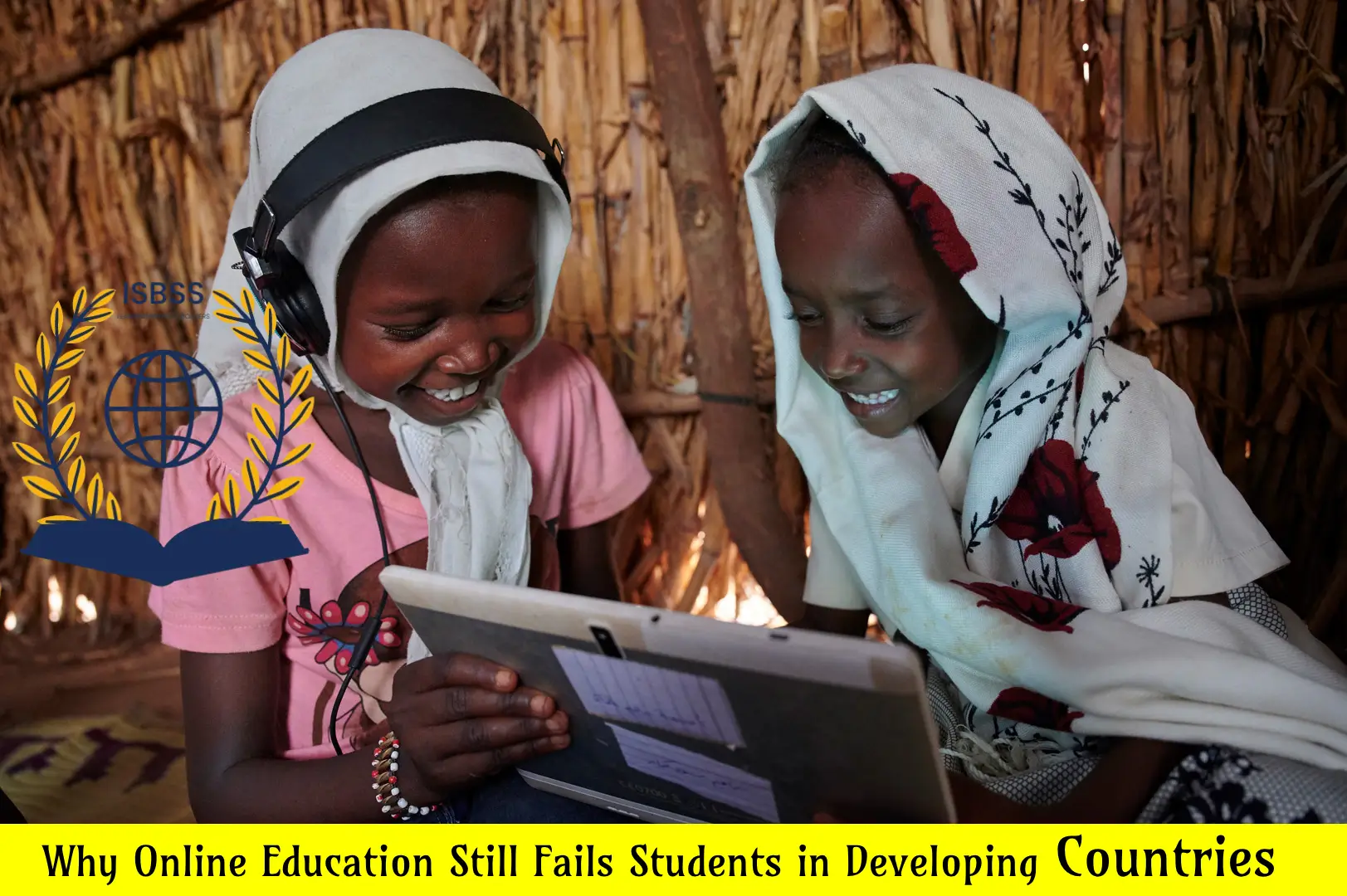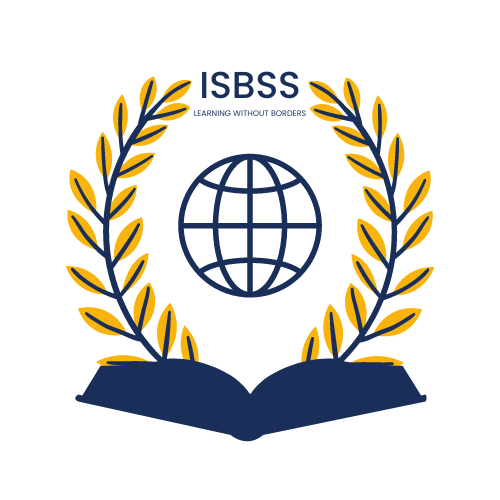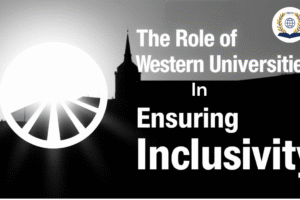
Why Online Education Still Fails Students in Developing Countries
Online education has transformed how the world learns, but for many students in developing countries, it remains a promise unfulfilled. While the idea of studying from anywhere sounds empowering, the reality is often different. Students across Africa, Asia, and Latin America continue to struggle with limited internet access, expensive tuition, irrelevant course content, and little to no academic support. Despite all its advancements, online education in developing countries still leaves too many bright minds behind.
Why are students in developing regions still excluded from global learning opportunities? Why do many drop out of online programs before completion? Can we truly call education “accessible” if the platforms and systems ignore the real-life challenges faced by learners in these regions, like power outages, poor connectivity, and teaching styles that don’t reflect their cultural context?
At ISBSS, we believe the solution lies in a better model, one that listens, understands, and adapts. This page explores the reasons online education in developing countries continues to fall short and how ISBSS is helping to change that. From providing pre-learning support and mentorship to advocating for affordable programs and localized teaching, we are building bridges where there used to be barriers. Read on to discover how ISBSS is working to make online education truly global, and truly inclusive.
We recommend you also see Hidden Cost of Studying Abroad | What Universities Don’t Tell You
Why Online Education in Developing Countries Isn’t Truly Inclusive
Online education in developing countries is often praised as a breakthrough for global learning. However, the reality for millions of students tells a different story. While the concept sounds inclusive, the execution frequently falls short, especially in regions where digital infrastructure is weak or even nonexistent. For many students in Africa, parts of Asia, and Latin America, the promise of online learning remains out of reach due to limited internet access, frequent power outages, and a lack of affordable digital devices.
Digital inclusion goes beyond simply having an internet connection. It means having reliable access to the tools, electricity, and resources necessary to learn effectively online. In many rural or low-income communities, students are forced to rely on mobile phones with limited data or must travel long distances to access internet cafes or powered study centers. These barriers not only delay progress but also widen the educational gap between students in developed countries and those in developing ones.
To truly fix the problem of online education in developing countries, the conversation must shift from offering “universal access” to creating real access. This includes investing in local infrastructure, building community tech hubs, and designing programs that work well even with low bandwidth. At ISBSS, we understand that education is only inclusive when it’s accessible. That’s why we advocate for practical solutions and offer personalized support to help students from underserved regions overcome these challenges and succeed in online learning.
The Problem of High Tuition Fees in Online Education
Online education is often advertised as a cheaper and more flexible alternative to traditional classroom learning. But for many students in developing countries, it’s anything but affordable. While courses from global institutions may be just a click away, the reality is that high tuition fees, costly subscription models, and hidden charges make access nearly impossible for learners from low-income backgrounds.
In many parts of the world, the average cost of a single online course can exceed a family’s monthly income. When you add expenses like internet data, laptops, exam fees, and even currency conversion rates, the total price becomes overwhelming. As a result, students who are eager to learn are left behind, not because they lack ambition, but because they can’t afford the opportunity.
We recommend you also see Visas and Policies Hinder International Students
At ISBSS, we believe that online education in developing countries must be restructured to prioritize affordable learning. We help students access discounted programs, apply for scholarships, and find open educational resources that reduce financial strain. Our mission is to ensure that no talented student is left out due to cost. With ISBSS, education becomes a right, not a luxury.
Lack of Mentorship and Guidance for Online Learners
Online learning can feel lonely, especially for students in developing countries who often have no one to turn to for help. Unlike traditional schools, many online programs don’t offer proper tutoring, mentorship, or even peer support. This lack of guidance makes it harder for students to stay motivated, ask questions, or solve problems when they’re stuck.
In many cases, students are left to figure everything out on their own. Without academic advisors, mentors, or group discussions, they can feel lost or overwhelmed. This support gap is one of the main reasons many learners drop out or fail to complete their courses.
ISBSS helps close this gap by offering hands-on student support. We connect students with mentors, study groups, and advisors who understand their needs. Whether you need help with assignments, career advice, or motivation, ISBSS makes sure you’re not alone in your online education journey.
We recommend you also see Cultural and Psychological Challenges of Studying Abroad | Study Abroad Psychology
Tech Trouble: Infrastructure Issues That Undermine Online Learning
Many students in developing countries face serious infrastructure challenges that make online learning very difficult. Power cuts, slow or expensive internet, and not having a good device like a laptop or smartphone are just some of the problems they deal with every day. These issues make it hard to attend classes, download materials, or even complete simple tasks.
Even when students are willing and ready to learn, these tech problems block their progress. It’s not that they can’t keep up; it’s that the system isn’t built for their reality.
At ISBSS, we understand these challenges. That’s why we support students by helping them find offline resources, low-data options, and flexible learning tools that work even with weak internet or limited access to power. Our goal is to make sure online education in developing countries works for everyone, not just for those with perfect tech setups.
How ISBSS Is Changing the Story for Students in Developing Countries
For many students in developing countries, online education feels out of reach. Between high costs, weak internet, and lack of support, the system often leaves them behind. But ISBSS is changing that story, one student at a time.
At ISBSS, we believe every learner deserves a real chance to succeed, no matter where they live. That’s why we offer full education support. We help students apply to the right programs, access financial aid, and prepare through pre-learning guidance. We also connect them with mentors who understand their challenges and provide advice, encouragement, and direction.
But we go further. ISBSS works with schools to push for better, more inclusive online education, tailored to the realities of students in Africa, Asia, Latin America, and beyond. Through our programs, many students who once felt lost or excluded are now learning, growing, and achieving their goals. ISBSS is not just a support system, it’s a movement to make online education in developing countries work for everyone.
We recommend you also see Online Business Degree: Dreams, Sacrifices, and Costs
Frequently Asked Questions About Online Education In Developing Countries
Many students face poor internet, frequent power outages, and a lack of digital tools like laptops or smartphones. These issues make it hard to join classes or finish assignments online.
No, most online learners in these regions lack access to mentors, tutors, or local guidance. Without help, it’s easy to feel confused, lost, or even drop out.
ISBSS helps students from developing countries get into suitable online programs and offers pre-learning training, mentorship, and support. We also work with universities to push for affordable, accessible, and inclusive online education.
Yes, with the right support. ISBSS helps students find low-bandwidth study options, downloadable content, and offline support tools that work even in places with poor connectivity.
You can contact us directly through our website. Our team will guide you through finding the right course, applying for aid, and preparing for success in online education—no matter your background.



